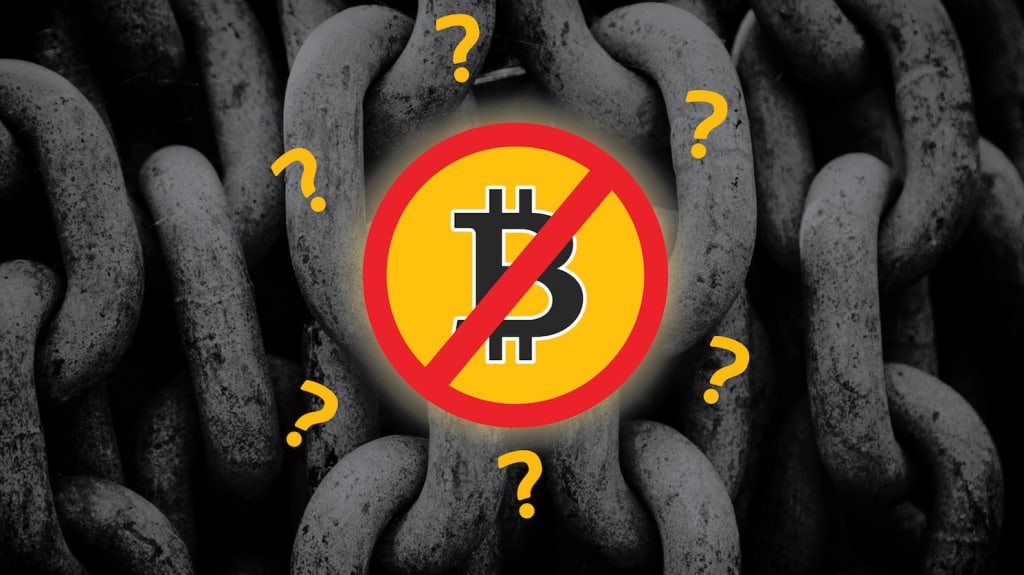In the current digital era, securing Bitcoin holdings is of paramount importance. The increasing value and popularity of Bitcoin have made it a prime target for cybercriminals. Bitcoin’s decentralized nature and irreversible transactions necessitate robust security measures to protect one’s investment.
Without adequate safeguards, Bitcoin owners risk losing their assets to theft or hacking, potentially jeopardizing their financial future. The absence of a central authority in the Bitcoin ecosystem means that individuals are solely responsible for the security of their digital assets. There is no recourse to a governing body or institution in case of theft or fraud.
This decentralized structure underscores the critical need for Bitcoin holders to implement strong security protocols. By recognizing the significance of security and adopting proactive measures, Bitcoin owners can significantly reduce their vulnerability to cybercrime. Implementing comprehensive security strategies is essential for preserving the integrity and value of one’s Bitcoin holdings in the long term.
Key Takeaways
- Security is crucial for protecting your Bitcoin holdings from theft and unauthorized access.
- Storing your Bitcoin in a secure manner, such as using hardware wallets or cold storage, is essential for safeguarding your investment.
- Different types of Bitcoin wallets, including hardware, software, and paper wallets, offer varying levels of security and convenience.
- Implementing two-factor authentication adds an extra layer of security to your Bitcoin accounts and transactions.
- Regularly updating your security measures, including software and firmware, is important for staying ahead of potential vulnerabilities and threats.
Best Practices for Storing Your Bitcoin Safely
Hardware Wallets: The First Line of Defense
When it comes to storing your Bitcoin safely, one of the most important practices is to use a hardware wallet, which is a physical device that stores your private keys offline. This provides an extra layer of security compared to online or software wallets, as it is not susceptible to hacking or malware.
Password Security: A Crucial Aspect
Using a hardware wallet is just the first step. Another best practice for storing your Bitcoin holdings safely is to use a secure and unique password for your wallet. Avoid using easily guessable passwords or reusing passwords from other accounts, as this can make it easier for hackers to gain access to your Bitcoin stash.
Two-Factor Authentication: An Additional Layer of Security for Bitcoin Holdings
It is also recommended to enable two-factor authentication for your Bitcoin wallet, which adds an extra layer of security by requiring a second form of verification before allowing access to your funds. By following these best practices for storing your Bitcoin safely, you can significantly reduce the risk of theft and ensure the security of your digital assets.
Exploring the Different Types of Bitcoin Wallets
When it comes to storing and managing your Bitcoin holdings, there are several different types of wallets to choose from, each with its own unique features and security considerations. The most common types of Bitcoin wallets include hardware wallets, software wallets, and paper wallets. Hardware wallets are physical devices that store your private keys offline, providing the highest level of security against hacking and theft.
Software wallets, on the other hand, are digital applications that can be installed on your computer or mobile device, offering convenience and accessibility but also making them more susceptible to hacking and malware. Paper wallets are another option for storing your Bitcoin, which involves printing out your private keys and Bitcoin address on a piece of paper. While paper wallets provide a high level of security as they are not susceptible to hacking or malware, they also come with their own set of risks, such as physical damage or loss.
It is important to carefully consider the different types of Bitcoin wallets and choose the one that best suits your needs and security preferences. By exploring the different types of Bitcoin wallets and understanding their respective pros and cons, you can make an informed decision on how to best store and secure your Bitcoin stash.
Utilizing Two-Factor Authentication for Added Security
Two-factor authentication (2FA) is a security feature that adds an extra layer of protection to your Bitcoin wallet by requiring a second form of verification before allowing access to your funds. This typically involves receiving a unique code on your mobile device or email, which must be entered along with your password to complete the login process. By utilizing 2FA for your Bitcoin wallet, you can significantly reduce the risk of unauthorized access and protect your digital assets from theft or hacking.
In addition to using 2FA for your Bitcoin wallet, it is also important to enable 2FA for any associated email accounts or online platforms that may be linked to your Bitcoin stash. This helps to further secure your digital assets by preventing unauthorized access to your email or other accounts that could be used to compromise your Bitcoin wallet. By utilizing 2FA for added security, you can create an additional barrier against potential threats and ensure the safety of your Bitcoin stash.
The Importance of Regularly Updating Your Security Measures
As technology and cybersecurity threats continue to evolve, it is crucial to regularly update your security measures to stay ahead of potential risks and vulnerabilities. This includes keeping your Bitcoin wallet software up to date with the latest security patches and updates, as well as regularly reviewing and updating your password and 2FA settings. By staying proactive and vigilant in updating your security measures, you can minimize the risk of falling victim to hacking or theft and ensure the ongoing security of your Bitcoin stash.
Furthermore, regularly updating your security measures also involves staying informed about the latest cybersecurity trends and best practices for protecting your digital assets. This may include following reputable cybersecurity blogs and news sources, as well as seeking advice from trusted professionals in the field. By staying informed and proactive in updating your security measures, you can effectively safeguard your Bitcoin stash against potential threats and ensure peace of mind in the security of your digital assets.
How to Safeguard Your Bitcoin from Phishing and Scams
Be Cautious with Unsolicited Requests
Phishing attacks and scams are common tactics used by cybercriminals to trick individuals into revealing their private keys or login credentials, leading to theft of their Bitcoin holdings. To safeguard your Bitcoin holdings, exercise caution when receiving unsolicited emails or messages requesting sensitive information related to your Bitcoin wallet. Be wary of any requests for private keys, passwords, or other personal information, as legitimate organizations will never ask for this information through unsolicited means.
Verify Website Authenticity
It is crucial to verify the authenticity of any websites or platforms that you use to access your Bitcoin wallet, ensuring that they are secure and reputable. Avoid clicking on suspicious links or downloading attachments from unknown sources, as these may contain malware or phishing attempts aimed at compromising your Bitcoin holdings.
Stay Vigilant and Minimize Risk
By staying vigilant and cautious in safeguarding your Bitcoin holdings from phishing and scams, you can minimize the risk of falling victim to cybercrime and ensure the ongoing security of your digital assets.
Seeking Professional Advice for Advanced Security Measures
For individuals with a significant amount of Bitcoin holdings or those seeking advanced security measures, seeking professional advice from cybersecurity experts or financial advisors can provide valuable insights and recommendations for safeguarding their digital assets. Professional advisors can offer tailored guidance on advanced security measures such as multi-signature wallets, cold storage solutions, and other sophisticated strategies for protecting large amounts of Bitcoin holdings from theft or hacking. In addition to seeking professional advice, individuals may also consider enlisting the services of reputable cybersecurity firms that specialize in securing digital assets such as Bitcoin.
These firms can provide comprehensive security assessments and solutions tailored to the specific needs and risk profile of individuals with substantial Bitcoin holdings. By seeking professional advice for advanced security measures, individuals can gain peace of mind in knowing that their Bitcoin stash is well-protected against potential threats and vulnerabilities. In conclusion, understanding the importance of security for your Bitcoin stash is essential for safeguarding your investment and financial future in today’s digital age.
By following best practices for storing your Bitcoin safely, exploring different types of Bitcoin wallets, utilizing two-factor authentication for added security, regularly updating your security measures, safeguarding your Bitcoin from phishing and scams, and seeking professional advice for advanced security measures, you can effectively protect your digital assets from potential threats and ensure peace of mind in the security of your Bitcoin stash.
If you’re looking for more information on the current state of Bitcoin, you might want to check out the article “Bitcoin Today: 06/9/2023,” which provides updates and insights into the latest developments in the world of cryptocurrency. This article can give you a better understanding of the market trends and news that could impact the security of your Bitcoin holdings.
FAQs About Bitcoin holdings
What is Bitcoin?
Bitcoin is a digital currency that operates independently of a central bank. It is decentralized and operates on a technology called blockchain, which is a public ledger of all transactions.
How can I secure my Bitcoin stash?
There are several ways to secure your Bitcoin holdings, including using hardware wallets, paper wallets, and secure online wallets. It is important to use strong passwords and enable two-factor authentication for added security.
What is a hardware wallet?
A hardware wallet is a physical device that stores the user’s private keys offline. This makes it less susceptible to hacking and theft compared to online wallets.
What is a paper wallet?
A paper wallet is a physical document that contains a public address for receiving Bitcoin and a private key for spending or transferring Bitcoin stored in that address. It is considered a secure way to store Bitcoin offline.
What is two-factor authentication?
Two-factor authentication is a security process in which the user provides two different authentication factors to verify themselves. This adds an extra layer of security to online accounts and helps prevent unauthorized access.
What are the risks of storing Bitcoin online?
Storing Bitcoin online can expose it to the risk of hacking and theft. Online wallets are vulnerable to cyber attacks, so it is important to use strong security measures to protect your Bitcoin holdings.




